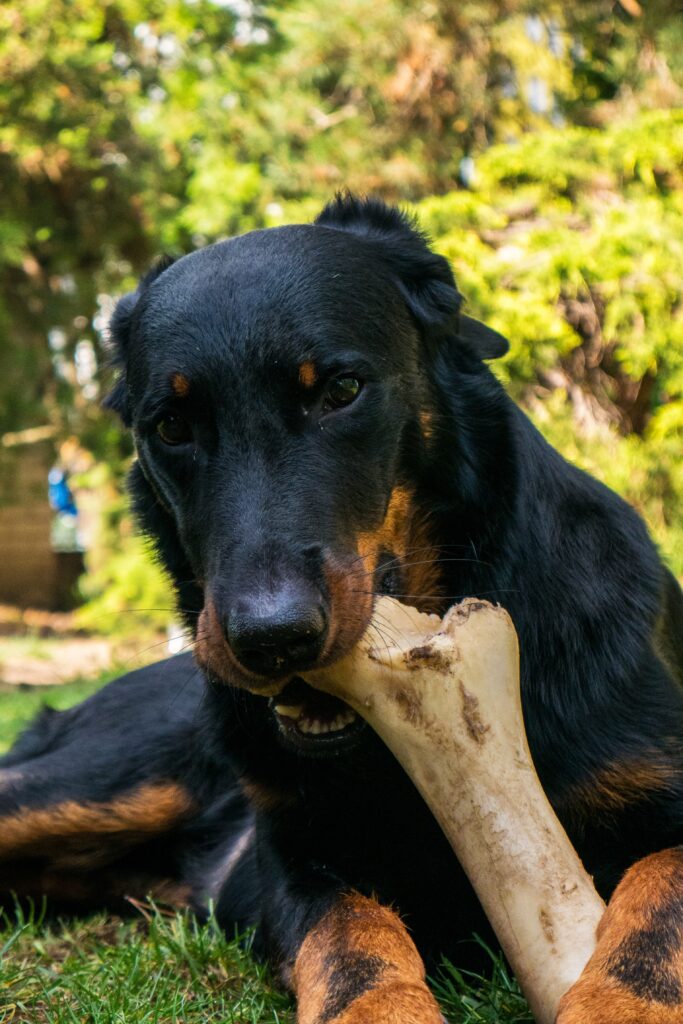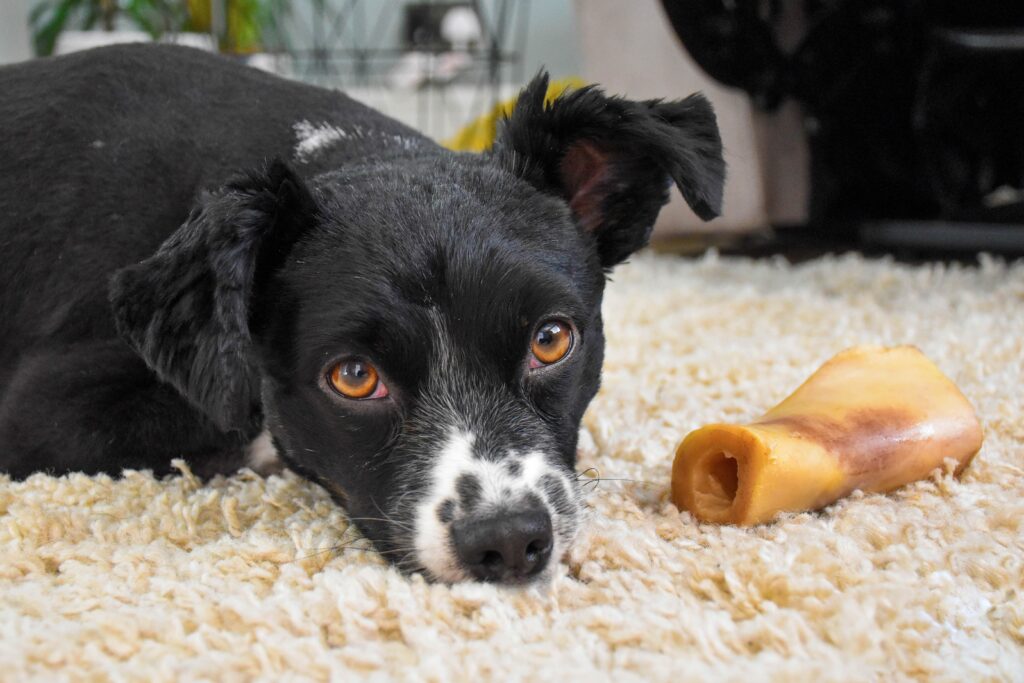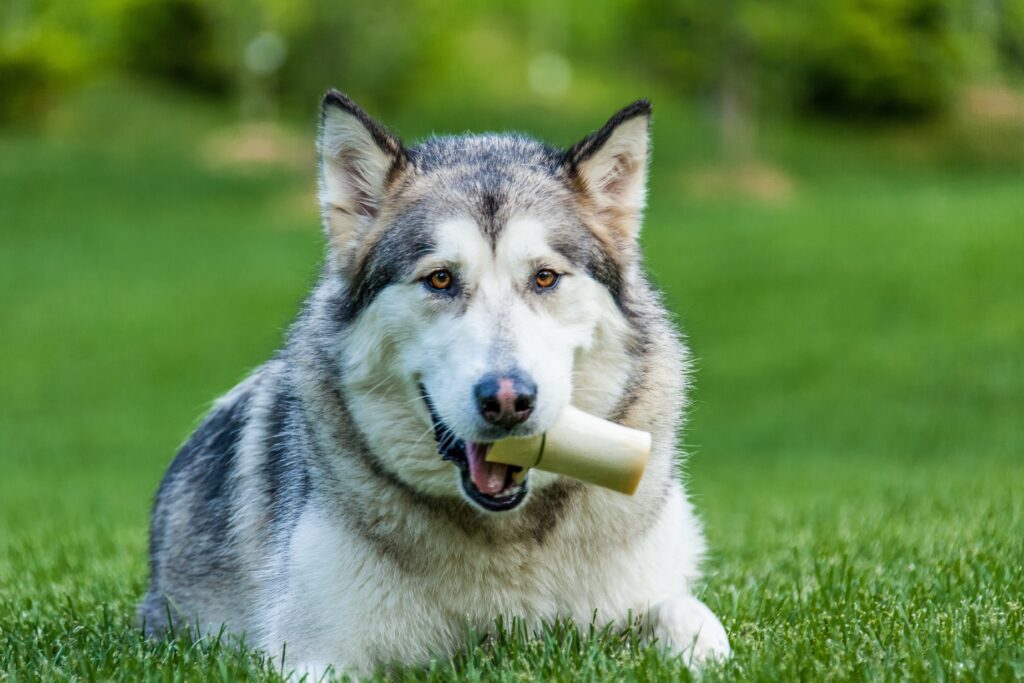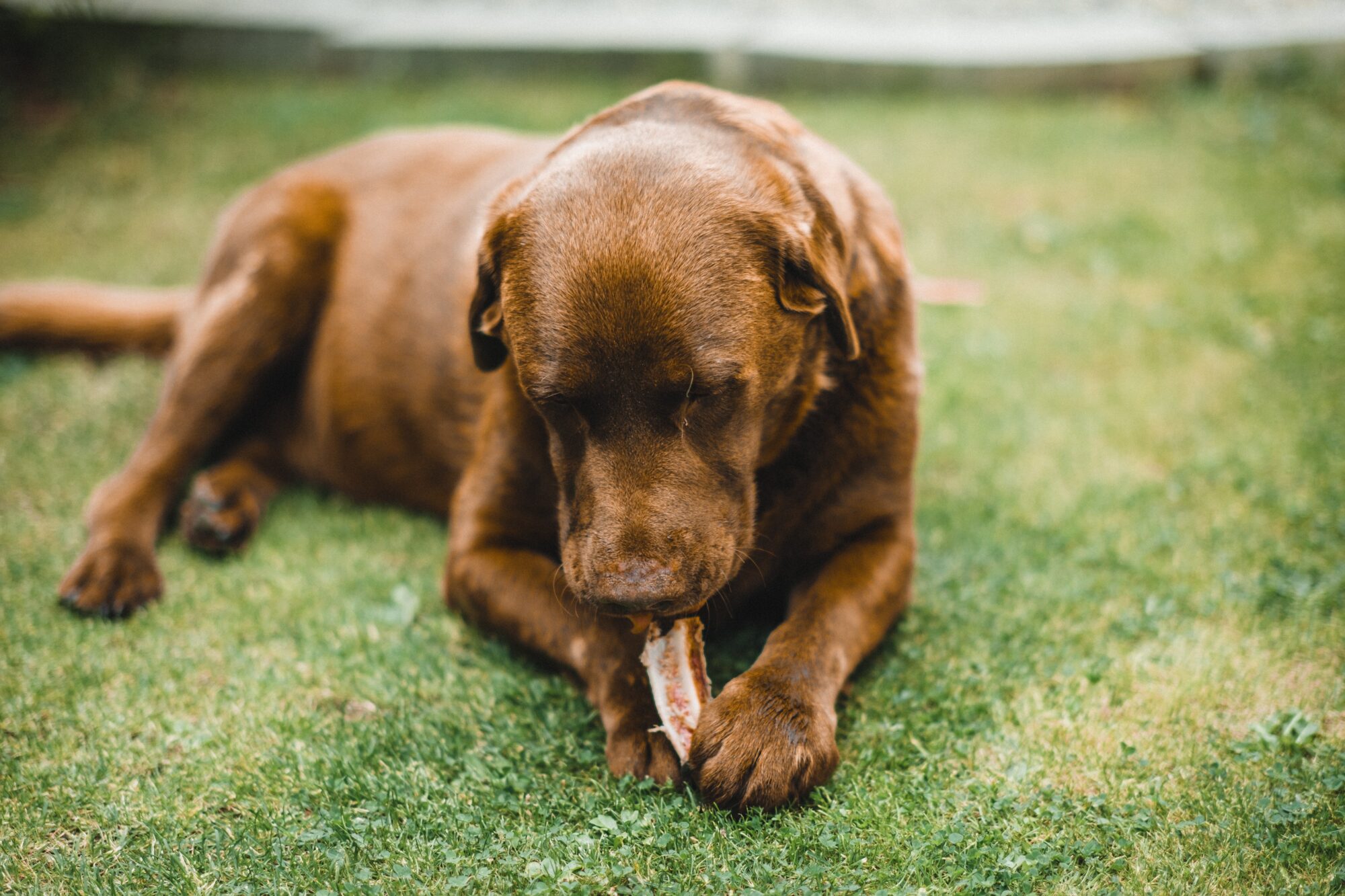As a pet owner, you love your dog and want to give them the best possible diet. You may have heard that dogs can eat bones, but can they eat lamb bones? The short answer is that it depends.
Lamb bones can be a tasty treat for dogs, and some dog breeds love to chew on them. However, there are some risks associated with feeding your dog lamb bones, especially if they are raw. In this article, we will explore the benefits and risks of feeding your dog lamb bones and offer some advice on how to do it safely.
Are Lamb Bones Good for Dogs?
Benefits of Lamb Bones for Dogs
Lamb bones can provide some health benefits for your dog. Chewing on bones can help to clean your dog’s teeth and remove plaque and tartar. This can help to prevent dental problems, which can be a common issue for dogs. Chewing on bones can also provide mental stimulation for your dog, which can help to keep them entertained and prevent boredom.

Risks of Lamb Bones for Dogs
There are some risks associated with feeding your dog lamb bones. The biggest risk is that the bones can splinter and cause internal damage. This can be especially true for raw bones, which are more likely to splinter than cooked bones. If your dog ingests a splintered bone, it can cause serious health problems, including punctures, tears, and blockages in their digestive system.
Another risk associated with feeding your dog lamb bones is that they can damage your dog’s teeth. This is especially true if your dog is an aggressive chewer. The bones can also be a choking hazard, especially if your dog tries to swallow them whole.
Can Dogs Eat Prawns? Find Out Here
How to Feed Your Dog Lamb Bones Safely
If you decide to give your dog lamb bones, there are some things you can do to minimize the risks. First, make sure the bones are cooked. Cooked bones are less likely to splinter than raw bones, so they are a safer option. However, you should still supervise your dog while they are chewing on the bones to make sure they don’t bite off any large pieces.
It’s also important to choose the right size lamb bone for your dog. Make sure the bone is large enough that your dog can’t swallow it whole but small enough that they can chew on it comfortably. You should also limit the amount of lamb bones you give your dog. Too much bone can upset their digestive system and cause constipation.
Finally, if you are unsure about whether or not to give your dog lamb bones, it’s always best to consult with your veterinarian. They can offer advice on the best diet for your dog and help you make an informed decision about whether or not to give them bones.

What Bones Are Safe for Dogs?
There are some bones that are generally considered safe for dogs to eat, but it’s important to always supervise your dog while they are chewing on bones to make sure they don’t bite off any large pieces or choke. Here are some types of bones that are generally considered safe for dogs:
Raw beef bones
Raw beef bones are a good option for dogs because they are less likely to splinter than cooked bones. They are also a good source of nutrients, including calcium and phosphorus.
Raw chicken bones
Raw chicken bones are small and soft, which makes them easy for dogs to chew. They are also a good source of nutrients.
Raw turkey bones
Raw turkey bones are similar to raw chicken bones and are generally safe for dogs to eat.
Antlers
Deer, elk, and moose antlers are a good option for dogs because they are hard and durable. They are also a good source of minerals.
Important Note:
It’s important to note that not all dogs can handle bones, and some dogs may have digestive issues or dental problems that make chewing on bones difficult or dangerous. If you are unsure about whether or not to give your dog bones, it’s always best to consult with your veterinarian.
My Dog Ate Doritos: What Do I Do?

Can Dogs Eat Lamb Bones: A Summary
In conclusion, while dogs can eat lamb bones, it’s important to do it safely. Raw lamb bones can be risky because they are more likely to splinter than cooked bones, which can cause internal damage. It’s important to supervise your dog while they are chewing on bones and choose the right size bone for your dog. If you are unsure about whether or not to give your dog lamb bones, it’s always best to consult with your veterinarian. With a little bit of care and attention, you can safely give your dog the benefits of chewing on lamb bones without putting their health at risk.
